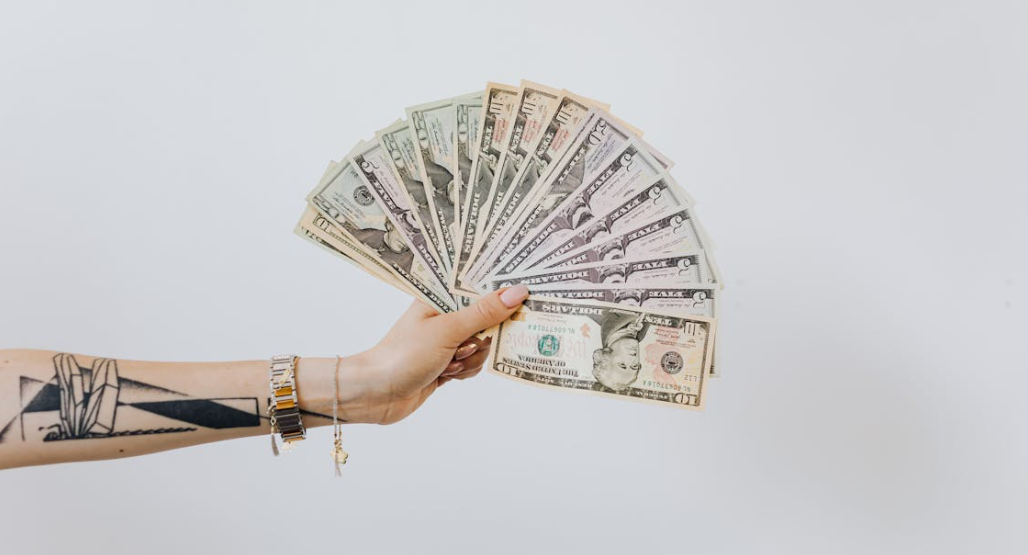- EasyCard
- Trade
- Help
- Announcement
- Academy
- SWIFT Code
- Iban Number
- Referral
- Customer Service
- Blog
- Creator
Can You Transfer Money on Cash App Using a Credit Card? A Detailed Guide and Fee Analysis
In today’s digital payment era, more and more people choose to use Cash App for convenient remittance services. By linking a credit card to Cash App, users can easily achieve fast payments and transfers. BiyaPay also provides similar convenient cross-border remittance services and supports payments in more international regions.

Can You Transfer Money on Cash App with a Credit Card?
Cash App allows users to make transfers with a credit card. Although this feature is very convenient, it should be noted that credit card payments are subject to certain limits and fees. According to Cash App’s policy, if you use the Cash App Cash Card (a debit card linked to your Cash App balance), you may be subject to spending limits, similar to other debit cards. The Cash App limit for Cash Card users is $7,000 per day and per transaction. The daily limit resets at 6 p.m. Central Standard Time each day.
This setting means that credit card payments are very suitable for handling smaller amount transfers, especially when you need to remit money quickly in an emergency. However, for larger fund transfers, debit card or bank account payments are more appropriate.
When using a credit card, users need to confirm whether their credit card can be used on Cash App and ensure that they do not exceed the payment limit to avoid transaction failures.
In addition, when paying with a credit card, Cash App will charge a certain fee. Although credit card payments are very convenient, due to the higher processing fees involved, the fees are relatively higher compared to debit cards or bank accounts. Therefore, it is very important to understand the specific fee structure of credit card payments to avoid unnecessary expenses.
Fees and Limits When Paying with a Credit Card
Although using a credit card is very convenient, Cash App charges a fee of about 3% for transfers made with a credit card. This is higher than using a debit card or bank account because credit card payments usually require higher processing fees. Each credit card transaction will be charged a fee of about 1.5%, and this part of the fee will be directly deducted from the remittance amount.
If you choose to pay with a debit card or Cash App balance, users can be exempt from these fees. Overall, although credit card payments are convenient, attention should be paid to the additional fees, especially when the transfer amount is large.
In addition to transaction fees, credit card payments may also be subject to other restrictions. For example, although Cash App does not directly limit the number of times a credit card can be used, due to the setting of the weekly limit, users need to pay attention to whether there are additional restrictions on the number of transactions.
The Cash Card has weekly and monthly limits. You can spend up to $10,000 per week and up to $15,000 per month. The weekly limit resets at 6 p.m. (CST) on Saturdays, and the monthly limit resets at 6 p.m. on the last day of each month.
The daily limit of the Cash Card covers all types of transactions. This includes in-store or online shopping, ATM withdrawals, and even rejected transactions. Basically, any activity using the Cash Card will count towards this daily limit.
For those users who need to use a credit card for remittance frequently, it is crucial to understand these limits and fees.
Precautions When Using a Prepaid Credit Card
Cash App supports remittance through a prepaid credit card, but not all prepaid cards can be used. Therefore, before adding a credit card to Cash App, users need to confirm whether the card is supported. When choosing a prepaid card, you also need to understand the additional fees that the issuer may charge. Some prepaid cards may come with usage fees or other additional fees, and users should understand them in advance to avoid unnecessary expenses.
When making payments, although using a prepaid card is convenient, for people without a bank account, they may face additional restrictions, and the transaction time may be slightly longer than that of a debit card. Since prepaid cards are usually not directly linked to a bank account, certain functions and payment methods may be restricted, especially in international transfers.
When using a prepaid card, users also need to pay attention to the card’s compatibility. Not all prepaid cards can be perfectly integrated with Cash App, so it is a very important step to ensure that the prepaid card is supported before using it. In addition, the security of prepaid card payments also requires special attention. Ensure that the card information is not leaked and only operate on trusted networks and devices.
Transfer Speed and Additional Fees
When remitting money with a credit card, the transfer is usually relatively fast and can usually be completed within a few minutes. However, the speed may also be limited by factors such as the quality of the Internet connection, the remittance amount, and the processing speed of the recipient’s bank.
If using a credit card for international remittance, in addition to the 3% handling fee, users also need to pay attention to the exchange rate issue. Cash App will update the real-time exchange rate according to the transfer amount and currency type. If there are additional currency conversion fees, users need to confirm the relevant fee and exchange rate information in advance to avoid unnecessary expenses.
For urgent transfer needs, credit card payment is a very suitable choice. The payment process is relatively fast, and in special cases, users can choose to withdraw cash immediately (usually an additional fee will be incurred). But even so, users still need to fully understand these additional fees to ensure that they make the most appropriate payment choice.
In addition, when using a credit card for remittance, certain credit card issuing companies may charge additional foreign exchange conversion fees. If international remittance is required, users also need to pay attention to the possible currency conversion issues. It is very important to understand and confirm the fees in advance to avoid unnecessary high expenses during the transaction process.
How to Ensure That the Credit Card is Connected to the Cash App Account
In order to ensure the security of the credit card in Cash App, users need to take a series of security measures. First of all, be sure to choose a secure network protected by SSL encryption for operation. Secondly, to improve account security, it is recommended to enable the two-factor authentication function to ensure that only authorized users can make transfers.
In addition, when using a credit card, users need to ensure that they operate on a trusted device and carefully check the transaction amount and information during the transaction to avoid errors or fraud risks. Regularly checking the account transaction records and promptly detecting abnormal activities will help ensure the security of the account funds.
When making transactions with a credit card, especially for cross-border remittances, confirming the security settings of the account is of great importance. Choosing a trusted payment platform and taking a series of security measures will effectively reduce the risk of account leakage.
Conclusion
Cash App provides a convenient credit card payment method, making international and domestic remittances more efficient and convenient. However, users should pay attention to the fees, limits, and possible additional expenses during the use process. When choosing credit card payment, it is necessary to decide whether to use this method according to personal needs and the transaction amount.
BiyaPay also provides cross-border remittance services. Users can enjoy unlimited remittance amounts and support local remittance methods worldwide, ensuring the safe and efficient transfer of funds. For those who need to remit money frequently, BiyaPay is an ideal choice, helping you easily complete various international transfers.
*This article is provided for general information purposes and does not constitute legal, tax or other professional advice from BiyaPay or its subsidiaries and its affiliates, and it is not intended as a substitute for obtaining advice from a financial advisor or any other professional.
We make no representations, warranties or warranties, express or implied, as to the accuracy, completeness or timeliness of the contents of this publication.




Contact Us
Company and Team
BiyaPay Products
Customer Services
BIYA GLOBAL LLC is a licensed entity registered with the U.S. Securities and Exchange Commission (SEC No.: 802-127417); a certified member of the Financial Industry Regulatory Authority (FINRA) (Central Registration Depository CRD No.: 325027); regulated by the Financial Industry Regulatory Authority (FINRA) and the U.S. Securities and Exchange Commission (SEC).
BIYA GLOBAL LLC is registered with the Financial Crimes Enforcement Network (FinCEN), an agency under the U.S. Department of the Treasury, as a Money Services Business (MSB), with registration number 31000218637349, and regulated by the Financial Crimes Enforcement Network (FinCEN).
BIYA GLOBAL LIMITED is a registered Financial Service Provider (FSP) in New Zealand, with registration number FSP1007221, and is also a registered member of the Financial Services Complaints Limited (FSCL), an independent dispute resolution scheme in New Zealand.




















